Exploring the Economic Benefits of Marijuana Legalization: How Legalization is Boosting Local Economies
The legalization of marijuana has been a controversial topic for decades, but in recent years, more and more states have taken the plunge and legalized the drug for recreational and/or medicinal use. While the debate over the health and social implications of marijuana legalization continues, one thing is certain: the economic benefits of marijuana legalization are undeniable.
Legalization has created a booming industry that is creating jobs, generating tax revenue, and stimulating local economies. In states where marijuana is legal, the industry has created thousands of jobs in the production, distribution, and sale of marijuana products. These jobs range from cultivation and retail positions to marketing and research roles. In addition, the industry has created ancillary jobs in areas such as security, packaging, and transportation.
The marijuana industry is also generating significant tax revenue for states. In Colorado, for example, marijuana sales generated over $266 million in taxes and fees in 2018. This money is being used to fund public health initiatives, education programs, and other state services.
Finally, marijuana legalization is stimulating local economies. In states where marijuana is legal, businesses that serve the industry are thriving. This includes everything from hydroponic stores to packaging companies to marketing firms. In addition, the industry is creating a demand for real estate, as businesses need space to grow and sell their products.
The economic benefits of marijuana legalization are clear. Legalization is creating jobs, generating tax revenue, and stimulating local economies. As more states move to legalize marijuana, these benefits will only increase.
Examining the Social Impact of Marijuana Legalization: How Legalization is Reducing Crime Rates
The legalization of marijuana has been a controversial topic for decades, but in recent years, more and more states have taken steps to legalize the drug for both medical and recreational use. While the debate over the potential health risks of marijuana use continues, one of the most compelling arguments for legalization is its potential to reduce crime rates. This article will examine the social impact of marijuana legalization and how it is reducing crime rates.
The first way that marijuana legalization is reducing crime rates is by reducing the number of arrests for marijuana possession. Prior to legalization, individuals caught with marijuana were often arrested and charged with a criminal offense. This resulted in a criminal record that could have long-term consequences, such as difficulty finding employment or housing. With legalization, individuals are no longer subject to arrest for possession of marijuana, which has significantly reduced the number of arrests for marijuana-related offenses.
The second way that marijuana legalization is reducing crime rates is by reducing the number of violent crimes associated with the illegal drug trade. Prior to legalization, the illegal drug trade was a major source of violence in many communities. With legalization, the illegal drug trade has been significantly reduced, resulting in fewer violent crimes.
The third way that marijuana legalization is reducing crime rates is by reducing the number of people incarcerated for marijuana-related offenses. Prior to legalization, individuals caught with marijuana were often sentenced to lengthy prison terms. With legalization, individuals are no longer subject to incarceration for marijuana-related offenses, which has significantly reduced the number of people incarcerated for marijuana-related offenses.
Finally, marijuana legalization is reducing crime rates by providing an alternative to the illegal drug trade. With legalization, individuals have access to a legal source of marijuana, which reduces the incentive to participate in the illegal drug trade. This has resulted in fewer individuals engaging in criminal activity associated with the illegal drug trade.
In conclusion, marijuana legalization is having a positive impact on crime rates. By reducing the number of arrests for marijuana possession, reducing the number of violent crimes associated with the illegal drug trade, reducing the number of people incarcerated for marijuana-related offenses, and providing an alternative to the illegal drug trade, marijuana legalization is reducing crime rates across the country.
Analyzing the Health Benefits of Marijuana Legalization: How Legalization is Improving Public Health
The legalization of marijuana has been a controversial topic for decades, but in recent years, more and more states have begun to legalize the drug for both medical and recreational use. While the debate over the potential risks and benefits of marijuana legalization continues, there is no denying that it has had a positive impact on public health. This article will explore the various ways in which marijuana legalization is improving public health.
First, marijuana legalization has led to a decrease in opioid-related deaths. Studies have shown that states with legalized marijuana have seen a significant decrease in opioid-related deaths. This is likely due to the fact that marijuana can be used as an effective alternative to opioids for pain relief. By providing an alternative to opioids, marijuana legalization has helped to reduce the number of opioid-related deaths.
Second, marijuana legalization has led to an increase in access to medical marijuana. In states where marijuana is legal, patients have access to a variety of medical marijuana products that can help to treat a variety of conditions. This increased access to medical marijuana has allowed patients to find relief from their symptoms without having to rely on potentially dangerous opioids.
Third, marijuana legalization has led to an increase in tax revenue. As more states legalize marijuana, they are able to collect taxes on the sale of the drug. This additional tax revenue can be used to fund public health initiatives, such as addiction treatment programs and mental health services.
Finally, marijuana legalization has led to an increase in research into the potential medical benefits of the drug. As more states legalize marijuana, researchers are able to conduct more studies into the potential medical benefits of the drug. This increased research has the potential to uncover new treatments for a variety of conditions, which could lead to improved public health outcomes.
In conclusion, marijuana legalization has had a positive impact on public health. By providing an alternative to opioids, increasing access to medical marijuana, generating additional tax revenue, and encouraging further research into the potential medical benefits of the drug, marijuana legalization is improving public health.
Examining the Legal Challenges of Marijuana Legalization: How Legalization is Impacting the Legal System
The legalization of marijuana has been a contentious issue in the United States for decades. In recent years, however, the tide has shifted in favor of legalization, with more and more states legalizing the drug for medical and recreational use. While this shift has been welcomed by many, it has also presented a number of legal challenges for the legal system.
One of the most pressing legal challenges posed by marijuana legalization is the conflict between state and federal law. While many states have legalized marijuana, it remains illegal under federal law. This creates a legal quagmire for businesses and individuals operating in states where marijuana is legal, as they are subject to both state and federal laws. This has led to a number of legal disputes, as businesses and individuals attempt to navigate the conflicting laws.
Another legal challenge posed by marijuana legalization is the issue of impaired driving. As marijuana becomes more widely available, there is an increased risk of drivers operating vehicles while under the influence of the drug. This presents a number of legal challenges, as law enforcement must determine whether a driver is impaired and, if so, how to prosecute them. Additionally, there is the issue of determining an acceptable level of impairment, as there is no reliable test for determining marijuana impairment.
Finally, there is the issue of taxation. As marijuana becomes more widely available, states are looking for ways to generate revenue from the drug. This has led to a number of legal challenges, as states attempt to craft taxation policies that are both fair and effective. Additionally, there is the issue of how to ensure that taxes are collected from businesses operating in the marijuana industry.
The legalization of marijuana has presented a number of legal challenges for the legal system. From the conflict between state and federal law to the issue of impaired driving and taxation, the legal system must grapple with a number of complex issues. As more states move towards legalization, it is likely that these legal challenges will only become more pressing.
Investigating the Political Implications of Marijuana Legalization: How Legalization is Shaping the Political Landscape
The legalization of marijuana has been a contentious issue in the United States for decades. In recent years, however, the tide has shifted in favor of legalization, with more and more states legalizing the drug for medical and recreational use. This shift has had a profound impact on the political landscape, as politicians and policymakers grapple with the implications of this new reality.
The most obvious political implication of marijuana legalization is the potential for increased tax revenue. As more states legalize the drug, they are able to collect taxes on its sale and distribution. This revenue can be used to fund public services, such as education and healthcare, or to reduce deficits. In addition, the legalization of marijuana has the potential to reduce the burden on the criminal justice system, as fewer people are arrested and prosecuted for marijuana-related offenses.
The legalization of marijuana has also had an impact on the political debate surrounding drug policy. In the past, the debate was largely focused on the “war on drugs” and the criminalization of drug use. However, with the legalization of marijuana, the debate has shifted to focus on the regulation of the drug and how it should be taxed and distributed. This shift has opened up a new avenue for politicians to discuss drug policy, and has led to a more nuanced debate about the issue.
Finally, the legalization of marijuana has had an impact on the political discourse surrounding the drug itself. In the past, marijuana was largely seen as a dangerous and illicit substance, and politicians were reluctant to discuss it in a positive light. However, with the legalization of the drug, politicians have become more willing to discuss its potential benefits, such as its medical uses and its potential to create jobs and stimulate economic growth. This shift in discourse has been a major factor in the increasing acceptance of marijuana in the United States.
In conclusion, the legalization of marijuana has had a profound impact on the political landscape. It has opened up new avenues for debate, created potential sources of revenue, and shifted the discourse surrounding the drug itself. As more states continue to legalize marijuana, these political implications will only become more pronounced.


